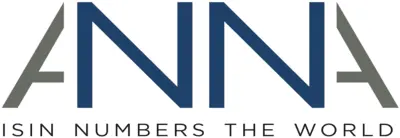Ratified at ANNA’s General Meeting in Split, 19-20 June 2025 London, 23 June 2025 –…
Big Changes to Classification of Financial Instruments
ANNA: Major Changes Planned for CFI Identifier Used by Investors, Financial Firms and Regulators
Classification of Financial Instruments Code Updated to Include OTC Derivatives and New Assignment Options for OTC Contracts
Dublin, Ireland and Brussels, Belgium – 4 June 2015 – At its annual ordinary membership meeting in Dublin, the Association of National Numbering Agencies today formally updated its membership regarding the changes to the Classification of Financial Instruments (CFI) expected to be published in Q3. The national numbering agencies which comprise the ANNA membership are tasked with issuing identifying codes for all new securities issuances in their jurisdictions. These codes include the International Securities Identification Number (ISIN) and the CFI, which provides more granular details on instrument structure and terms.
“The updating of the CFI has been very important to the industry because it enables the new regulatory reporting mandates for derivatives to be accomplished through the same family of ISO-standard identifiers that are embedded globally through the operational lifecycle of other types of investment instruments,” notes Emma Kalliomaki, Head of SEDOL Master File at LSE Group and ANNA board member. She is also the convener of the ISO Working Group that is updating the CFI.
The expansion of the CFI standard, also known as ISO 10962, is the result of a revision process by a Working Group convened under ISO TC68/SC4, the Securities and Related Financial Instruments Subcommittee of the International Organization for Standardization (ISO). Active and ongoing participation was provided by a large number of national and liaison members including several industry organisations. The revised CFI standard was unanimously approved by participating countries earlier this year.
Among the changes to the standard are the extension of the classification of exchange-traded derivatives and the introduction of over-the-counter derivatives contracts, including swaps, spot, forwards, strategies, and complex options. OTC contracts, which can be multi-legged deals, were not previously addressed in the CFI because they are typically private contracts between counterparties, not traded openly on exchanges. New regulatory mandates, including the clearing of some OTC contracts through clearing houses and regulatory reporting on their formation and evolving status as they age, have triggered requirements for standard identification and classification codes.
The updated CFI rules will also include a radical departure from the historic assignment process. Currently CFIs are allocated only by national numbering agencies simultaneously with the allocation of ISINs. While the integral link between ISIN and CFI will continue, the revision permits counterparties in OTC transactions to self-generate CFIs based on the ISO 10962 allocation rules. Since these deals are not exchanged traded and have a limited lifespan, it is expected that in many cases the CFI will provide the necessary classification for clearing and reporting purposes.
In addition, the new classification rules for derivatives were designed to align with the ISDA taxonomy and FIX Protocol classification schemes. Despite the significant expansion to the CFI, care was taken to minimize impact on the user community and maintain, as much as possible, backwards compatibility with existing CFIs.
As a result of the new allowances for user allocation with OTC instruments, the role of Registration Authority for CFIs previously performed by ANNA will be discontinued. However, the allocation of ISINs and CFIs for financial instruments will continue to be done simultaneously by the ANNA membership globally.
About ANNA
Established in 1992 by 22 founding numbering agencies, ANNA is the membership organization of national numbering agencies, which are operated by depositories, exchanges, government agencies, nationally central data vendors and other financial infrastructure organizations. ANNA also serves as the registration authority for the ISIN numbering standard, under appointment by the International Organization for Standardization (ISO). Under ANNA’s stewardship, the role of the ISIN in enabling global financial communications has been established worldwide. ISINs are issued today in excess of 120 jurisdictions, while the number of national numbering agencies and nations working to establish national numbering agencies continues to grow each year.
For information about ANNA, its members and activities, please visit anna-web.org.
Media contact:
Kathleen Hawk
kathleen@clearviewpr.com
+1 845 687-2222



